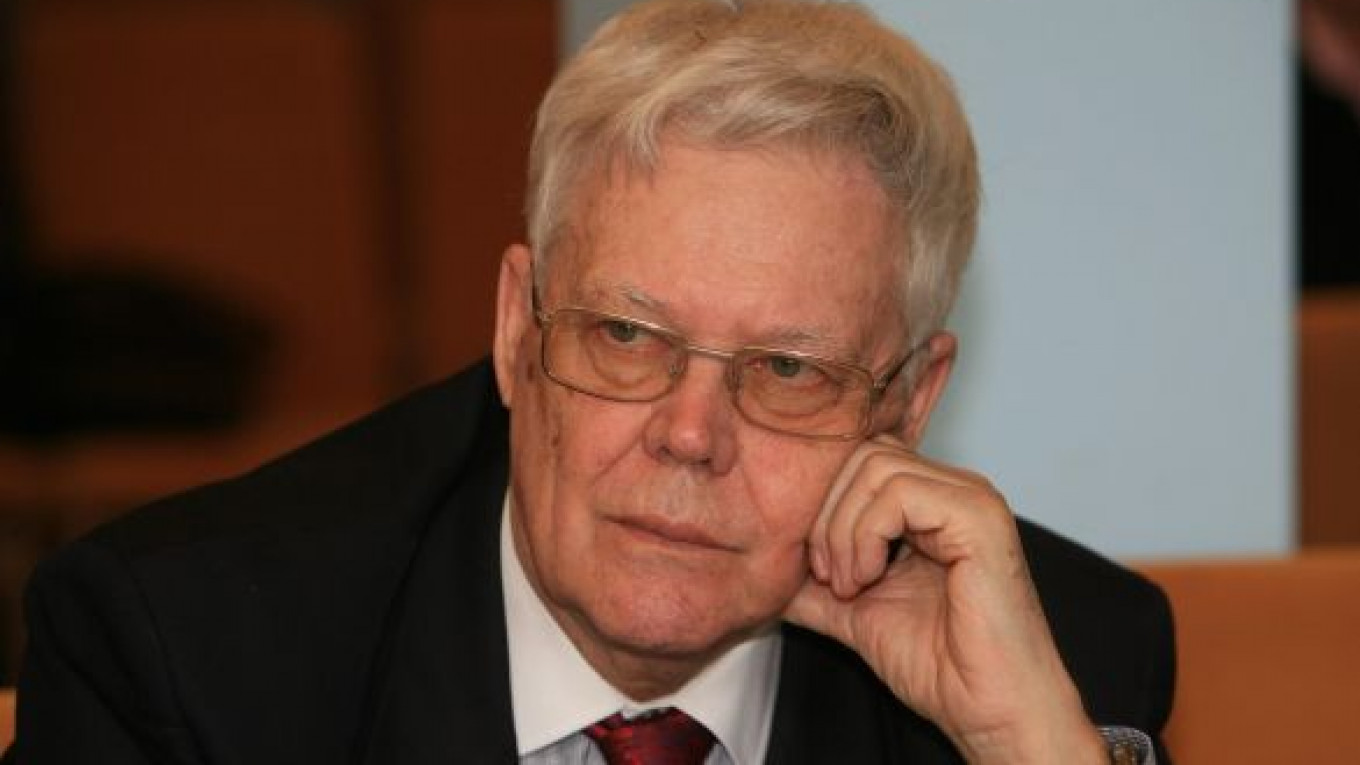Vitaly Shlykov, a former Soviet intelligence agent who spent years in a Swiss prison after being convicted of espionage and later became an internationally known military analyst, has died at 77.
Shlykov died of a heart condition over the weekend at his apartment in Moscow, the Council for Foreign and Defense Policy confirmed Monday. Shlykov was one of the founders of the council, which advises the Kremlin on security issues.
Shlykov joined Soviet military intelligence in 1958 after graduating from Moscow's Institute of International Relations. He served for 30 years in the Main Intelligence Directorate of the Russian General Staff, known under its Russian acronym of GRU.
During his GRU career, he worked as a senior analyst specializing in assessing the military industries of the United States and other Western nations. He made frequent trips to the West on a false American passport.
One of his duties was to maintain contacts with Dieter Felix Gerhardt, a senior officer of the South African Navy who was working as a Soviet spy. In January 1983, Shlykov was arrested on a trip to Zurich while carrying the equivalent of about $100,000 in cash to hand over to Gerhardt's wife, who was supposed to serve as a liaison.
Soviet intelligence was unaware that Gerhardt and his wife had been arrested a few weeks earlier and had told interrogators about the meeting in Switzerland.
Realizing after the arrest that his cover had been blown, Shlykov claimed he was a Soviet citizen who had emigrated to the West — another false identity he was supposed to offer in just such a case.
He never revealed his true identity to the Swiss police and, in 1984, was convicted of espionage and sentenced to three years in prison. He was released early for good behavior and returned to the Soviet Union in 1986.
Following his retirement from Soviet military intelligence two years later, he served from 1990 to 1992 in the government of Russia's first president, Boris Yeltsin, as deputy head of a committee for public security.
In more recent years, Shlykov helped engineer a radical reform of the Russian military to shed its Cold War legacy and turn it into a modern force.
He first spoke to the media about his espionage experience two decades after quitting the service.
"During my life span, I have lived several lives, full of tension and excitement," he said in a 2006 interview with Radio Liberty.
He is to be buried Tuesday at Troyekurovskoye Cemetery.
A Message from The Moscow Times:
Dear readers,
We are facing unprecedented challenges. Russia's Prosecutor General's Office has designated The Moscow Times as an "undesirable" organization, criminalizing our work and putting our staff at risk of prosecution. This follows our earlier unjust labeling as a "foreign agent."
These actions are direct attempts to silence independent journalism in Russia. The authorities claim our work "discredits the decisions of the Russian leadership." We see things differently: we strive to provide accurate, unbiased reporting on Russia.
We, the journalists of The Moscow Times, refuse to be silenced. But to continue our work, we need your help.
Your support, no matter how small, makes a world of difference. If you can, please support us monthly starting from just $2. It's quick to set up, and every contribution makes a significant impact.
By supporting The Moscow Times, you're defending open, independent journalism in the face of repression. Thank you for standing with us.
Remind me later.






